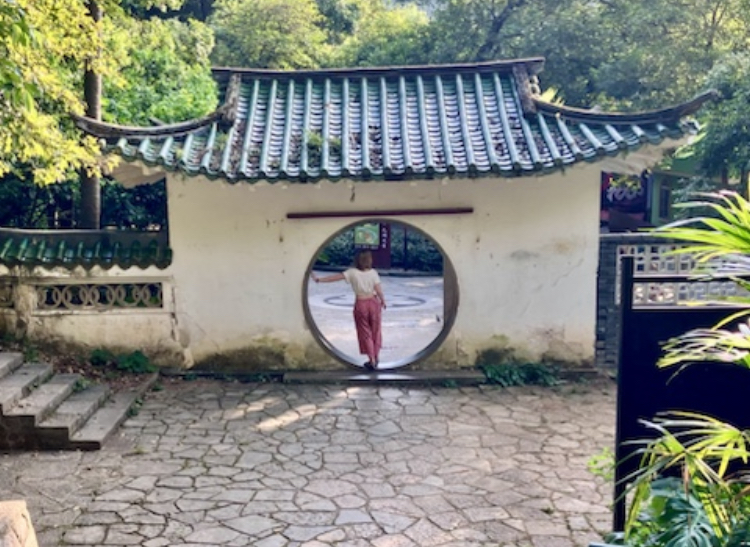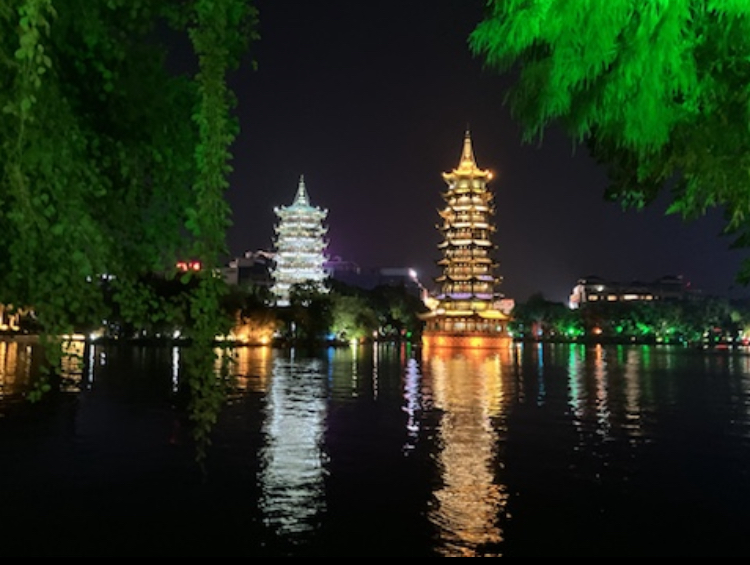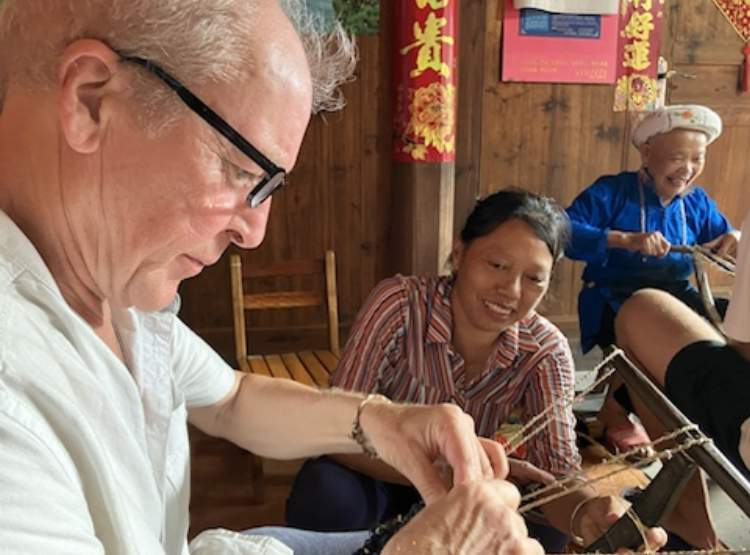
Care and Coercion, Kindness and Control - Theo’s blog
I’m writing my last blog from China after leaving China, on a train from Kunming to Luang Prabang in Laos, because there’s things I wouldn’t write about being in China while being in China, just in case.
It struck me after our first week here that most of what most of my friends mostly do, they could do just as freely in Guilin or Chengdu. They might even feel a bit freer. They’d be taking a risk if they organised a new religious practice or ran an ideological discussion group, or if they smoked and grew weed – but even then, there’s a very good chance that the eyes of the state would ignore them. China is a very big pond to try and control, and most of us are very small fish. In this phase of Chinas development, live-and-let-live is a very real sentiment, ( so long as you’ve ticked the required bureaucratic boxes, of course).
But everyone also knows that if the state decides that something shouldn’t be talked about, then it shouldn’t, at least not in public. From different interactions we could tell this was the case with the Uyghur minority being repressed in Xinjiang. Although that repression wasn’t visible to us, the post-9:11-level of security at Urumchi station, the armed police and camera presence in the street market, and the crowd-control infrastructure – barriers, turnstiles, electronic scanners – at the entrance to public buildings and working class housing estates, told us some of the story. This was only obvious once we’d visited other regions where no such measures were remotely in place. It was only while sitting in a public park in Urumchi that we were approached twice by a cop and some public officials to account for ourselves and our movements, while posters and murals showed members of the happy Uyghur minority dancing and quaintly pursuing traditional folk customs. It wasn’t a situation we were going to enquire about, though with or without VPNs it seems that most Chinese had some awareness of it too.
And that’s the inescapable downside. The week before we left China I read reports that the Uyghur scholar and folklorist Rahile Dawut, who is a world renowned academic previously honoured and funded by the Chinese state, had been sentenced to life imprisonment for “endangering national security” after a trial held behind closed doors. Locking her and her knowledge away looks like part of a larger attempt to erase any sense of Uyghur independent identity in Chinese culture. (Read more here: https://thechinaproject.com/2023/09/28/outrage-at-chinas-life-sentence-of-uyghur-folklore-scholar-rahile-dawut/ ).
So my impression is that individuals are seen as expendable. Their rights and liberties can be sacrificed for whatever is thought to be in the interests of the whole – and what is in the interests of the whole can be decided by a largely unaccountable ruling group. Also, when someone is seen as a transgressor, the punishments can be very harsh by our standards. The fact is that me and Shannon, our band and our various “activist” friends, would not be at large for very long if we behaved in China as we have in the West.
While Rosa and Shannon were studying Mandarin, I read some books on Chinese and Central Asian history and a popular 14th century Chinese novel, “The outlaws in the marsh”. It looks to me that the attitude to individual liberty vs the needs of the state, and the need for harsh penalties, has remained pretty much the same for 4000 years (not that the punishments now are anywhere near as grim!). What changed with the revolution was that the brutal class structure of feudalism was destroyed and the rule of the aristocracy was replaced by the party, with members drawn from all classes, and more commitment to the good of the greatest number. To some extent the rhetoric of socialism is believed in.
It interested me that on three occasions I saw involving uniformed officers – once with an unlicensed street vendor, once about a railway ticket and once with a passenger having his bag searched – the citizens weren’t afraid to shout back or show their fury, and the onlookers didn’t feel intimidated either.
I think it would be wrong to think that in China power simply flows one way. At regular intervals rebellions and popular uprisings have changed the direction of government and overthrown tyrants. Unjust or corrupt officials are sometimes removed through unrest and petitioning from below. In recent years big changes in policy direction have come about partly through wildcat strikes of workers or mass environmental protests by residents. There’s an expectation, throughout China’s history, that officials should be just and take care of the common good. This is very much the tone of the current president Xi Jinping, whose “Thoughts” are currently guiding Chinese government policy.
(If you’re interested, you can read how those thoughts are positively influencing Chinas ecological attitudes here: https://www.carbonbrief.org/analysis-nine-key-moments-that-changed-chinas-mind-about-climate-change/?utm_content=buffer9219e&utm_medium=social&utm_source=twitter.com&utm_campaign=buffer )
This curious combination of care and control was what we witnessed with the cop and the officials in the Urumchi park – on the one hand clearly monitoring us and wanting to know our precise business, in case we were any kind of threat to the folksy Uyghur narrative China wants to project from that region, but on the other hand, genuinely looking out for our welfare as travellers with a care that would put the Met to shame.
It’s too easy, and in many ways grossly hypocritical, to criticise a monumental civilisation like China through a western lens, and coming here has shown me that – to the point that if I was a lot younger, I’d seriously consider trying to move here. But it’s also reminded me that the really important liberty we have in my home country, at least in theory, is equality before the law and a transparent, publicly accountable legal process. That’s European civilisation’s absolutely precious gift to the world, although Xi Jinping probably wouldn’t agree with me.
And if I was Chinese, he might not want to let me express that opinion, either.




Yes, well said. It’s an odd mix isn’t it. Throughout Chinese history officials were expected to regularly advise and comment all the way up to the Emperor on affairs. And were as regularly killed for doing so. Brutal purges were made of officials doing their job. No wonder they just wanted to retire to their estates to write poetry! As in Europe, the court was a dangerous place to be, the wisdom of the Confucian codes never constitutionalized, but despite the oppression, the beauty and power of Chinese culture shone through.
I love the picture of the waterfall and your wonderful words of clarity of what you saw and felt. Thank you
Lovely to hear your voice Theo. And also great to hear your experience and thoughts on visiting China. Maybe the situation everywhere is more nuanced than we think… xxx